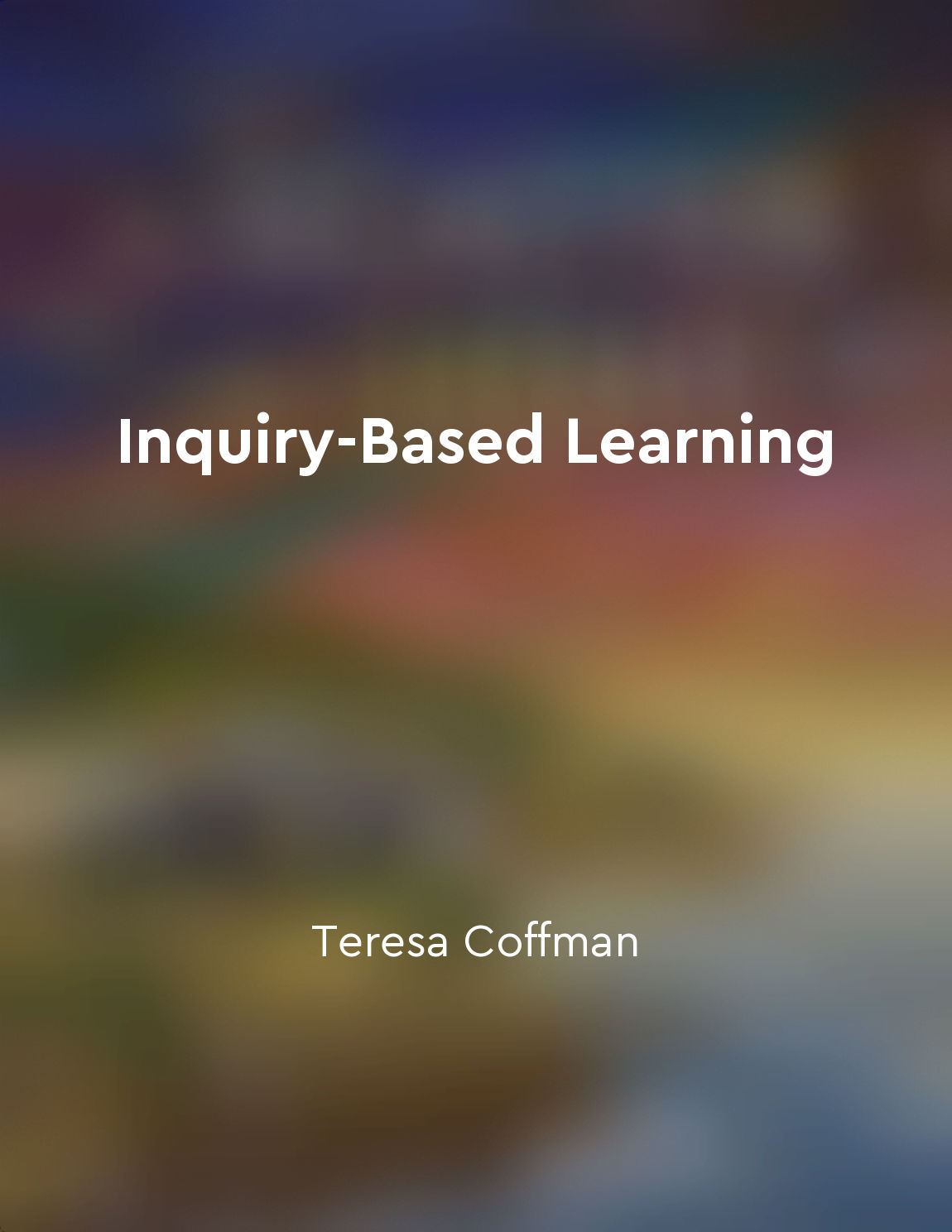Inquirybased learning cultivates problem-solving skills from "summary" of Inquiry-Based Learning by Teresa Coffman
The process of inquiry-based learning is one that actively engages students in constructing their knowledge through asking questions, investigating topics, and seeking answers. By encouraging students to explore and question, this approach cultivates critical thinking skills that are essential for problem-solving. Rather than simply memorizing facts or following step-by-step instructions, students are challenged to think critically, analyze information, and develop creative solutions to real-world problems. Inquiry-based learning requires students to take an active role in their education, moving beyond passive learning to become independent thinkers and problem-solvers. Through inquiry, students learn to ask meaningful questions, gather and evaluate evidence, and draw well-supported conclusions. This process not only helps students develop a deeper understanding of the material but also equips them with the skills they need to tackle complex problems in any field. One of the key benefits of inquiry-based learning is that it promotes a growth mindset, encouraging students to see challenges as opportunities for growth and learning. When students are faced with a problem, they are encouraged to persevere, think creatively, and seek out new ideas. This approach helps students develop resilience and adaptability, essential qualities for success in an ever-changing world. Inquiry-based learning also fosters collaboration and communication skills, as students work together to explore and solve problems. By engaging in discussions, sharing ideas, and working as a team, students learn to communicate effectively, listen to others' perspectives, and consider multiple viewpoints. These skills are crucial for solving complex problems that require input from a variety of sources and perspectives.- Inquiry-based learning is a powerful tool for cultivating problem-solving skills in students. By encouraging curiosity, critical thinking, and collaboration, this approach prepares students to tackle the challenges of the future with confidence and creativity. Through inquiry, students not only learn how to solve problems but also how to approach challenges with an open mind and a willingness to learn and grow.
Similar Posts
Embrace failure as a stepping stone to success
Failure is not the end of the road, but rather a stepping stone on the path to success. In the journey of striving for greatnes...
Critical thinking involves weighing evidence carefully
When engaging in critical thinking, it is essential to carefully consider the evidence presented before drawing any conclusions...
Analyzing problems helps in identifying root causes
When faced with a problem, it is crucial to analyze it thoroughly in order to uncover the underlying root causes. This process ...
Provides indepth analysis of each topic
The content goes beyond the surface level and delves deep into every subject matter covered. Each topic is thoroughly examined ...

Inquirybased learning promotes curiosity
The driving force behind inquiry-based learning lies in its ability to foster curiosity in students. By encouraging learners to...
Boost confidence in mathematics
The concept of boosting confidence in mathematics is a crucial aspect of academic development, especially at a young age. When ...

Inquirybased learning promotes empathy and understanding
Empathy and understanding are essential components of a well-rounded education that prepares students for success in an increas...
Use questions to build rapport and connections with others
Building rapport and connections with others is a fundamental aspect of effective communication. One way to achieve this is by ...
Encouraging curiosity and questioning leads to deeper understanding and engagement
In our educational system, we often prioritize the acquisition of knowledge rather than fostering curiosity and questioning. Ho...

Encouraging critical thinking is essential
Encouraging critical thinking is an indispensable element of the inquiry-based learning process. Critical thinking enables stud...

